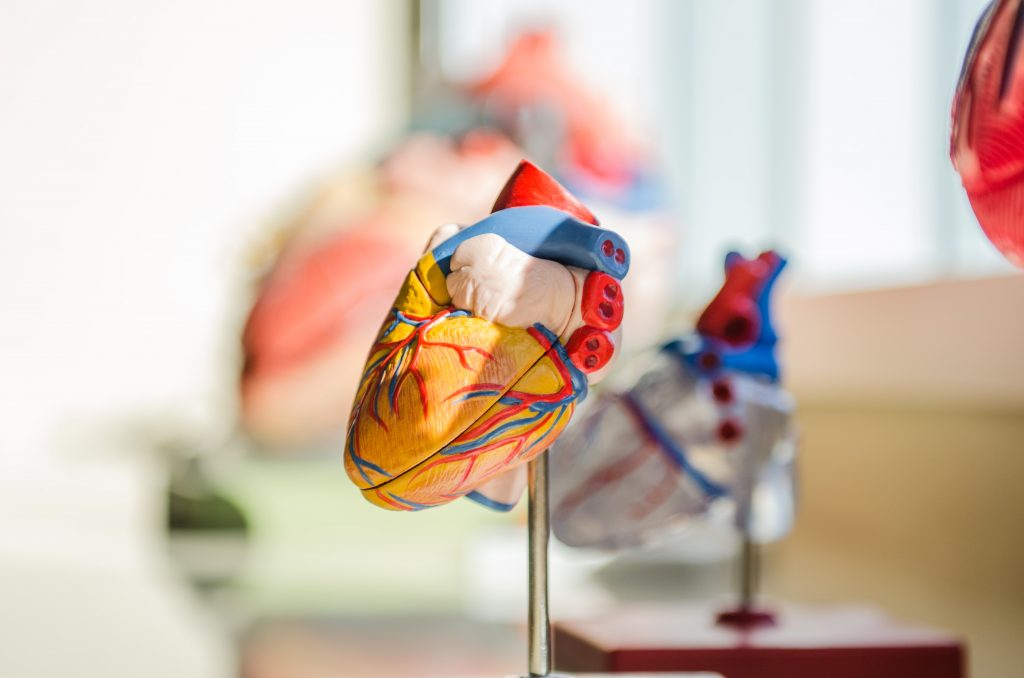26.07.2021
In the UK, 11% of men and 9% of women have been diagnosed with a form of heart or circulatory disease. One of the most common forms of cardiovascular disease is Coronary heart disease, also known as CHD, and it’s a major cause of death in the UK.
Despite how serious this condition can be, many of the early warning signs and symptoms can seem like daily aches and pains. It’s easy to think these pains might go away by themselves or put off making a doctor’s appointment. If you feel like something is wrong though, it’s important to visit your GP as soon as possible. They’ll be able to help you manage your symptoms early or refer you to cardiovascular services.
An online survey, conducted by the European Association For the Study of Obesity, found that, during lockdown, 1 in 5 respondents increased their intake of fatty foods and 1 in 3 reported increasing sugary food during lockdown.
This is cause for concern as the main cause of coronary heart disease is a build-up of fatty deposits, atheroma, on the walls of the arteries surrounding the heart. The build of atheroma makes the arteries narrower so blood flow to the heart becomes restricted, which is known as atherosclerosis. An unhealthy diet can majorly contribute to this so prioritising a healthy diet can help you manage, and prevent, heart disease.
You may be considered at increased risk for heart disease if:

One reason heart disease can go undetected for long periods of time is that many of the symptoms don’t seem related to the heart at first glance. Because some of these symptoms can seem like common health complaints, regular cardiovascular screening is important. This is especially true if you’re already at risk of heart disease.
The most common heart disease symptoms are:
Especially if this pain presents as a heaviness or pressure on your chest. If you have chest pain during exercise but then it fades post-exercise, it’s more likely to be Angina but you should still get this checked out by a doctor.
While exercising, shortness of breath is quite common and can be related to over excretion. If you’re experiencing shortness of breath for no apparent reason, this can be a symptom of heart disease and is caused by the decreased ability of your heart to fill and empty.
Chest pain is one of the most well-known symptoms of a heart attack, which is caused by coronary heart disease. However, you can experience pain throughout the entire body and shouldn’t ignore any unexplained pains.
Sudden light-headedness or dizziness is caused by a reduced flow of blood to the brain, which can be caused by blocked arteries.
A feeling of sickness can be related due to a decreased blood flow to the digestive system which interferes with the digestive process.
It’s important to note that not everyone will have the same symptoms, and some people can have no symptoms at all before diagnosis.
While we’ve discussed the most common symptoms of heart disease, there are a wide variety of symptoms to look out for.
There are some symptoms that women are more likely to suffer from such as nausea, jaw pain, fainting episodes and cold sweats. Often these symptoms can be mistaken for other illnesses so if you experience them, get it checked out sooner rather than later.
Coronary heart disease is the leading cause of heart attacks but heart attacks can present themselves very differently in women. Research from the European Society of Cardiology has shown women having heart attacks wait around 37 minutes longer than men before calling emergency help. The longer you wait to get help for a suspected heart attack, the more likely you are to suffer serious damage.
One of the most well-known symptoms of a heart attack is chest pain, for women though, there are often no chest pains at all. Older people and those with diabetes are also less likely to suffer from chest pains. The NHS recommends looking at the overall symptom pattern and when in doubt, call for help.
Like many health conditions, heart disease cannot be cured but, with the right treatment plan, you can manage it. By managing your heart disease, you can still live a healthy, productive, enjoyable life and begin to lower your risk of it progressing to a heart attack.
It’s essential that you make sure to work with your GP to make sure you’re actively monitoring your condition at all times. Some of the most common advice for how you can help to manage your heart disease at home is to target lifestyle changes.
If you have any queries or aren’t sure who is the right medical professional to make an appointment with, get in touch and a member of our team will be happy to help
Stay up to date
To request information on any of our other services, please call or complete the enquiry form below: